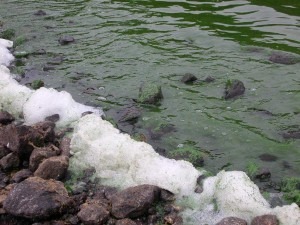
Researchers from the UK, Belgium, Malta, and Poland have developed a low-cost, environmentally friendly technology known as 'Nitrabar', which substantially removes nitrate from groundwater.
The project is an EC Life Environment Project that demonstrates the remediation of agricultural diffuse, nitrate-polluted waters through the implementation of a permeable, reactive barrier.
The Nitrabar system, designed by Prof Kalin, consists of a trench containing a mixture of natural materials and a permeable reactive barrier, which removes nitrate from shallow groundwater immediately before it enters rivers or lakes.
A feature of the system is its ability to convert dissolved nitrates in the groundwater to harmless Nitrogen gas through the action of bacteria.
Organic materials such as straw or trimmings from vegetation clearance can be employed as a source of carbon within the Nitrabar trench.
The project has been underway since December 2005 and a demonstration site has been established at the Ecos Millennium Environmental Centre in Ballymena, Northern Ireland, where the system is being continuously monitored to prove its performance under varying ground conditions and nitrate fluxes.
Dr Bruce Howard, project manager, said: 'The idea behind Nitrabar is simple: harnessing a natural process to deal with diffuse nitrate pollution - one of modern agriculture's most intractable environmental legacies.
'The challenge now is to encourage farmers, government agencies, environmentalists and others to work together to replicate the approach across Europe at the local level,' he added.
Nitrabar has demonstrated the potential to remove over 90 per cent of the nitrate load entering surface water from agriculture and is the only technology that tackles the legacy of nitrate contamination in shallow groundwater.
The system has effectively zero land take as it can be buried below ground.
It may also be possible that restrictions on fertiliser usage could be less severe if a farmer can demonstrate nutrient losses to water courses are being reduced by means of technologies such as Nitrabar.

